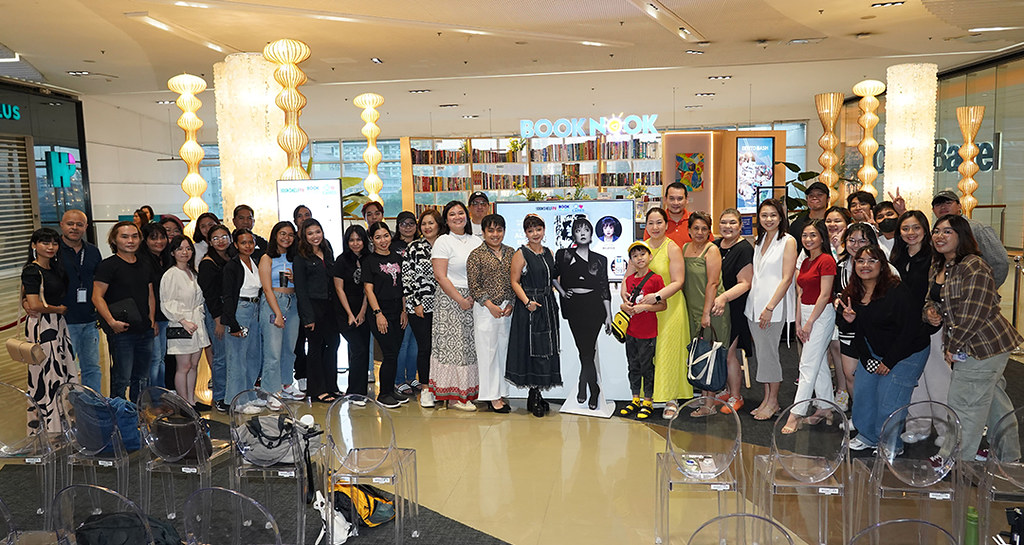Before we get into this, yes, “presidentiable” is recognized by the Oxford English Dictionary.
As expected, the lead-up to the 2016 presidential elections was rife with drama. To recall, we saw: plunder and forfeiture cases; a candidate’s questioned status as a natural-born Filipino, the melodramatic search for her biological parents, and subsequent disqualification by the Commission on Elections (COMELEC); a withdrawal of candidacy and a basketball game-ish substitution; repeated campaign runs by previous presidential candidates, and a former president convicted of plunder promising to campaign again if ever his two bets don’t make the final cut.
2016 is no exception. As in previous years, it’s become a huge mashup of democratic process, entertainment, and shocking headlines. Out of the 130 people who originally filed their certificates of candidacy to become the 16th President of the Republic of the Philippines, we’re now down to five major bets. It’s never too early to scrutinize them—and see which candidate can truly get us back on the right track.
(Note that these candidates’ platforms and positions on issues may change, particularly when the official campaign season begins in February. We’re also including Sen. Grace Poe in this list because she had filed a formal appeal regarding her disqualification by the COMELEC on December 2015, the same month this article was written. We’ve assumed that given the unpredictability of national politics and decisions, the disqualification could be overturned. If that doesn’t happen, oops. Our bad.)
Jejomar Binay
The incumbent Vice President of the Philippines and ex-human rights lawyer was never shy about his aspirations for the highest government position in the country. He announced his intention to run for the presidency way back in 2011, the earliest among the current crop of bets to do so.
Binay has also had a long political career. He started out in Makati as its mayor and was ultimately in charge of the city, a.k.a. the country’s financial center, for a combined 19 years. He’s had stints at the Metropolitan Manila Development Authority and the Housing and Urban Development Coordinating Council, too. Despite the numerous plunder cases levied against him and his family (four of whom became politicians as well), previous tax and graft cases, and another graft case to be filed once his VP (or presidential?) term ends, he still has a considerable support base in Makati (city hall employees, barangay level, and civilians included), and the backing of people like boxer and current Sarangani Representative Manny Pacquiao. We’ve a few more months to see if Binay can buck these cases and regain the lead in the polls—and the highest seat in government.
- Party: United Nationalist Alliance (UNA)
- Running Mate: Gregorio “Gringo” Honasan II
- Previous Work:
- Officer-in-Charge, Makati City, 1986-1987
- Mayor, Makati City, 1988-1998; 2001-2010
- Chairman, Metropolitan Manila Development Authority, 1990-1991
- Chairman, Housing and Urban Development Coordinating Council (HUDCC)
- Vice President, Republic of the Philippines (2010-present)
- Platform:
- His “three pillars”: social inclusion and improvement of basic services, economic dynamism, and effective and caring governance.
- Boosting employment in the following industries: agriculture, manufacturing, tourism, BPO and export; and strengthening the mining, agriculture, and manufacturing industries.
- Lowering the tax rate from 30 percent to 25 percent and reviewing the current taxation system.
- Constitutional amendments and educational reforms.
- Increasing foreign investment and abolishing the law on foreign ownership.
- Expedited processing of documents and registrations.
- Improvements in public transportation, infrastructure, and coordination between government agencies and offices.
- The creation of the Department of Information Technology and faster internet speed.
Rodrigo Duterte
If you thought Binay’s 19-year rule over Makati was long enough, Rodrigo Duterte’s combined 22-year leadership in Davao certainly trumps it. Beginning as officer-in-charge vice-mayor in 1986, “Digong” then became mayor in 1988, and left only for a three-year stint at the House of Representatives plus another three years of work as his daughter Inday Sara’s vice-mayor.
Davao’s successes in the past few decades have been attributed to him—from ordinances regulating smoking, liquor consumption, videoke usage, and speed limits for all vehicle types, to a city-wide firecracker ban and 911 service, and the improvement of health and social services along with added law enforcement and security provisions. Davao City is now often regarded as a model for safety and order, and it’s hard to disagree.
But Duterte’s also received his fair share of criticism. His ties with the infamous Davao Death Squads and his willingness to rid his city (and this country) of criminals via extrajudicial killings are at the top of that list. His tough-as-nails attitude and way of speaking (not to mention way with the ladies) reinforce his hands-on and macho public image, but those don’t jive with a job that calls for measured diplomacy and discipline. Is “Dirty Harry” ready to go beyond Davao? Or the better question may be: Is the entire country ready for him?
- Party: Partido Demokratiko Pilipino-Lakas ng Bayan (PDP-Laban)
- Running Mate: Alan Peter Cayetano
- Previous Work:
- Officer-in-Charge Vice-Mayor, Davao City, 1986-1987
- Vice Mayor, Davao City, 2010-2013
- Mayor, Davao City, 1988-1998; 2001-2010; 2013-present
- Representative, Davao City 1st District, 1998-2001
- Promises:
- Transition from democratic government to federalism to be able to deal with region-specific problems and decentralize power from one location, among other matters
- “Stamp out corruption.”
- Switching to food crop from cash crop to decrease dependence on imported food from Vietnam, Laos, etc.
- Negotiations with China over territorial issues in the West Philippine Sea.
- Keep food prices stable by teaming up with the private sector, and spend more on agricultural research.
- Help farmers manage their lands, and harness unused manpower outside urban areas for labor and infrastructure work.
- Enact the Freedom of Information (FOI) law.
- Make public transportation and government services faster and more reliable.
- Raise police personnel’s salaries, repeal the Juvenile Justice and Welfare Act, reinstate the Death Penalty, and implement “swift justice” for all criminals.
Grace Poe
Years before the 2015 COC filings, her name was one of those often mentioned as a possible contender. Her good standing with the public as former Movie and Television Review and Classification Board chair, first-placer neophyte Senator, and roles in the passing of the Freedom of Information (FOI) law and hearings on transport issues (among other achievements) helped get her to the pool of prospective presidential candidates, but she said then that she wasn’t ready for that high position yet.
Well… things change. Her supporters’ wishes came true when she formally announced her candidacy on September 2015, along with a whopping 20-point “Bagong Umaga” campaign platform. However, cases filed against her concerning her status as a natural-born Filipino have gotten in the way, and caused some confusion. While the Senate Electoral Tribunal ruled in her favor and affirmed her Filipino citizenship as a foundling, the COMELEC has disqualified her due to her residency period and citizenship. As of December 2015, Poe has filed a motion for reconsideration.
- Party: National People’s Coalition (NPC)
- Running Mate: Francis “Chiz” Escudero
- Previous Work:
- Chairman, Movie and Television Review and Classification Board (MTRCB), 2010-2012
- Senator, 2013-present
- Platform:
- The enactment of the FOI law.
- Improving education via digital tech, the “Study Now, Pay Later” program, and internships.
- Improvements in agriculture and tourism; and implementation of programs for fishing, farming, and livestock propagation.
- Lowering of income taxes and power rates.
- Development of renewable energy.
- Increase of wages and benefits.
- Inclusive growth, industrialization, and job creation.
- More legal support and decreased red tape for OFWs.
- Fight against crime and illegal drugs.
- Respect for human rights and the needs of vulnerable sectors.
- Peace talks with different groups currently against the government.
- Improvement of health services and the PhilHealth program.
- Strengthen the Philippine Coast Guard to be better able to address territorial disputes.
- Infrastructure and transportation improvements in Metro Manila and other major cities.
- Improved IT infrastructure (including Internet access and speed).
- Increased support for arts, culture, and sports.
- Establishing a Department of Emergency Management and a Standard Lunch Program for young students.
- Broadened conditional cash transfer
Mar Roxas
He’s done his time, and he believes it’s now his time at the top. His first attempt in 2010 for the presidency was thwarted by public sentiment, and he had to settle for political appointments after losing the VP seat to Jejomar Binay. Six years later, he’s gunning for Malacañang again, and with the full backing of the current President and their political party.
Mar Roxas, a.k.a. Mr. Palengke, has pledged to keep on fighting for the “Daang Matuwid,” something he described in a November 2015 Rappler video interview as a unique platform compared to the usual campaigns aiming to overhaul or undo predecessors’ work. While the gains made during the current administration are much appreciated, myriad public service and PR gaffes on Roxas’ watch will make one question if it’s right for him (and consequently, us) to keep on the same path, or better to just change directions.
- Party: Liberal Party (LP)
- Running Mate: Leni Gerona Robredo
- Previous Work:
- Representative, Capiz 1st District, 1993-2010
- Secretary, Department of Trade and Industry (DTI), 2000-2003
- Senator, 2004-2010
- Secretary, Department of Transportation and Communications (DOTC), 2011-2012
- Secretary, Department of the Interior and Local Government (DILG), 2012-2015
- Platform:
- To continue and expand Daang Matuwid, particularly with regard to infrastructure investments, anti-poverty work, social equality, and transparency/fight against corruption.
- Sustain current economic performance, amend trade and economic policies, and make sound fiscal and monetary decisions.
- Improve private businesses’ growth and competitiveness, and partner up with them.
- Create more jobs in the Philippines (e.g., in the BPO sector and in rural areas) and increase government protection for OFWs.
- Make cheaper medicine available for all Filipinos.
- Improve government preparation for, management, and response to disasters.
- The passage of the Bangsamoro Basic Law (BBL).
Miriam Defensor-Santiago
She’s widely regarded as one of the most brilliant minds in government today—and she’s sharp with her words as well, spitting out equal parts eloquence, wit, and barb. She’s served in all three government branches; authored academic textbooks, an autobiography, a dictionary, and even two bestselling humor books; received honors including the Magsaysay Award; and eaten death threats for breakfast.
Y’all know her name, and you’re about to know it again as she’s making her third run for President. Despite her defeats in 1992 and 1998, Santiago has remained a force to be reckoned with. She was a prominent figure in important national matters (e.g., the Corona Impeachment and the hot mess that is the PDAF scam); and authored laws including the Reproductive Health Act of 2012, the Magna Carta for Women, the Cybercrime Act of 2012, and the Sin Tax Law. But unlike in those previous presidential campaigns, she’s also had to overcome major health issues as of late; chronic fatigue syndrome forced her to resign from the International Criminal Court (ICC), and she says she’s ready to campaign anew after just overcoming Stage 4 lung cancer. Will she beat the odds yet again—and win on her third try?
- Party: People’s Reform Party (PRP)
- Running Mate: Ferdinand “Bongbong” Marcos, Jr.
- Previous Work:
- Commissioner, Commission of Immigration and Detention (CID), 1988
- Secretary, Department of Agrarian Reform (DAR), 1989-1990
- Judge, International Criminal Court (ICC), 2011-2014
- Senator, 1995-2001; 2004-present
- Platform:
- A clean and courageous government, “by and for academic excellence.”
- Continuing the conditional cash transfer program, but also bring in local governments for efficiency and plugging the program’s leaks.
- Implement personal and corporate tax reforms “within six months of her administration.”
- Heavy investments in public infrastructure, which will spur higher and sustained economic growth.
- Investments in people through education, health services, and food security.
- Agricultural investments, especially in aspects that promote higher productivity (e.g. irrigation, post-harvest facilities, and farm-to-market roads).
- Strengthening political institutions, and passing law that allows the use of public funds on dominant political parties.
- Enactment of the FOI law.
- Tax system overhaul, and review of all government programs and projects.
- Fight against safety threats and the illegal drug trade.

















